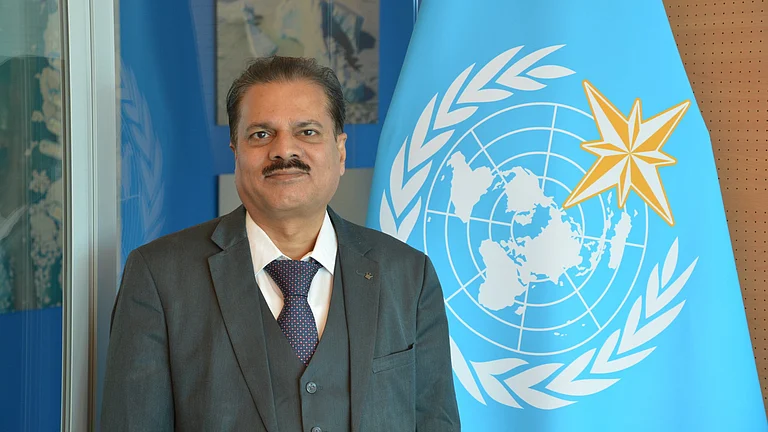Coral reefs and rainforests face irreversible damage due to rapid climate change.
Scientists urge action at COP30 to reduce carbon emissions and prevent collapse.
Renewables surpass coal for the first time, showing hope for cleaner energy future.
Ecosystem Collapse Imminent Amid Accelerating Climate Crisis, Says Report
Global ecosystems at risk, accelerating climate crisis demands urgent global action
With the coral reef around the world at the brink of undergoing permanent loss, global warming is progressing towards dangerous thresholds sooner than expected, approaching the first “tipping point” in climate-driven ecosystem collapse, according to Global Tipping Points Report 2025.
The warning in the above report has been concluded by 160 researchers worldwide comes just weeks ahead of this year's COP30 climate summit scheduled to be held at the edge of the Amazon rainforest in Brazil in November.
The rainforest system is now at risk of collapsing once the average global temperature warms beyond just 1.5 degrees Celsius based on deforestation rates, the report said, revising down the estimated threshold for the Amazon.
The Amazon is also influenced by large-scale atmospheric and oceanic circulation shift called the Atlantic Meridional Overturning Circulation, or AMOC, which helps to ensure mild winters in northern Europe.
The Earth’s climate and natural systems, such as the forests and oceans, are changing very rapidly now and tragically, some of these are causing serious damage to the biosphere, which may be irreversible, environmental scientist Tim Lenton at the University of Exeter, who is the lead author of the report told Down To Earth.
Urgent Action Needed
Meanwhile, some positive signs were observed in case of phasing out the fossil fuels which is most responsible for climate change. According to the nonprofit think tank Ember, renewable led to overtaking coal generation for the first time on record in the first half of 2025.
“Nobody wants to be just traumatised and disempowered,” Lenton told Down To Earth, adding, “We still have some agency.”
The scientists urged countries meeting at the COP30 in November to take action and reduce amount of carbon emissions that cause global warming.
Scientists have been surprised by how quickly changes are unfolding in nature, with average global temperatures already having warmed by 1.3-1.4 degrees Celsius (2.3 to 2.5 degrees Fahrenheit) above the preindustrial average, reported Down To Earth.
According to a 2021 Intergovernmental Panel on Climate Change report, the climate changes will increase in all regions in the coming years. The report further indicated that there will be increasing heat waves, longer warm seasons and shorter cold seasons for 1.5 degrees Celsius of global warming. In addition, heat extremes would more often reach critical tolerance thresholds for agriculture and health at 2 degrees Celsius of global warming.
